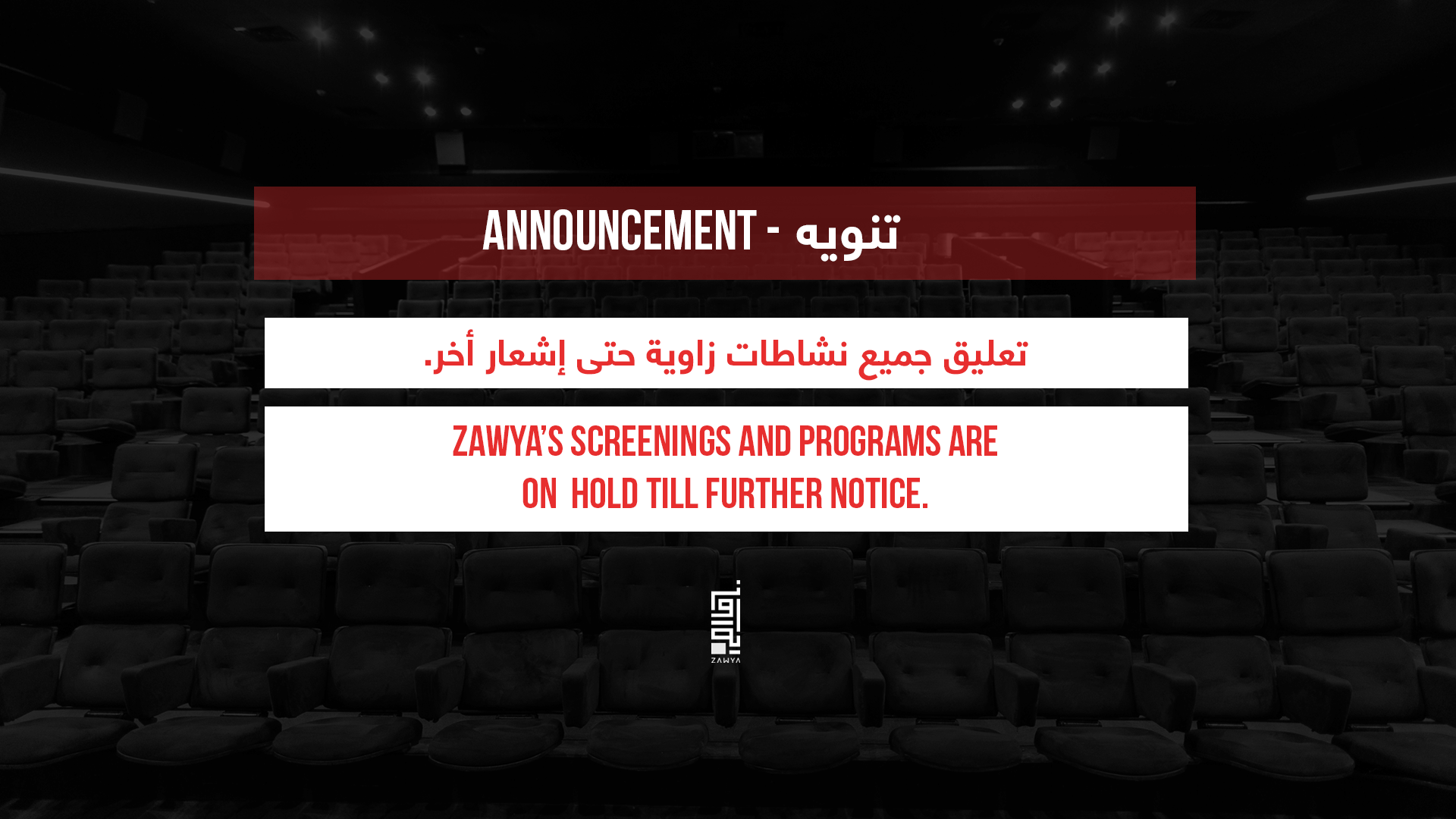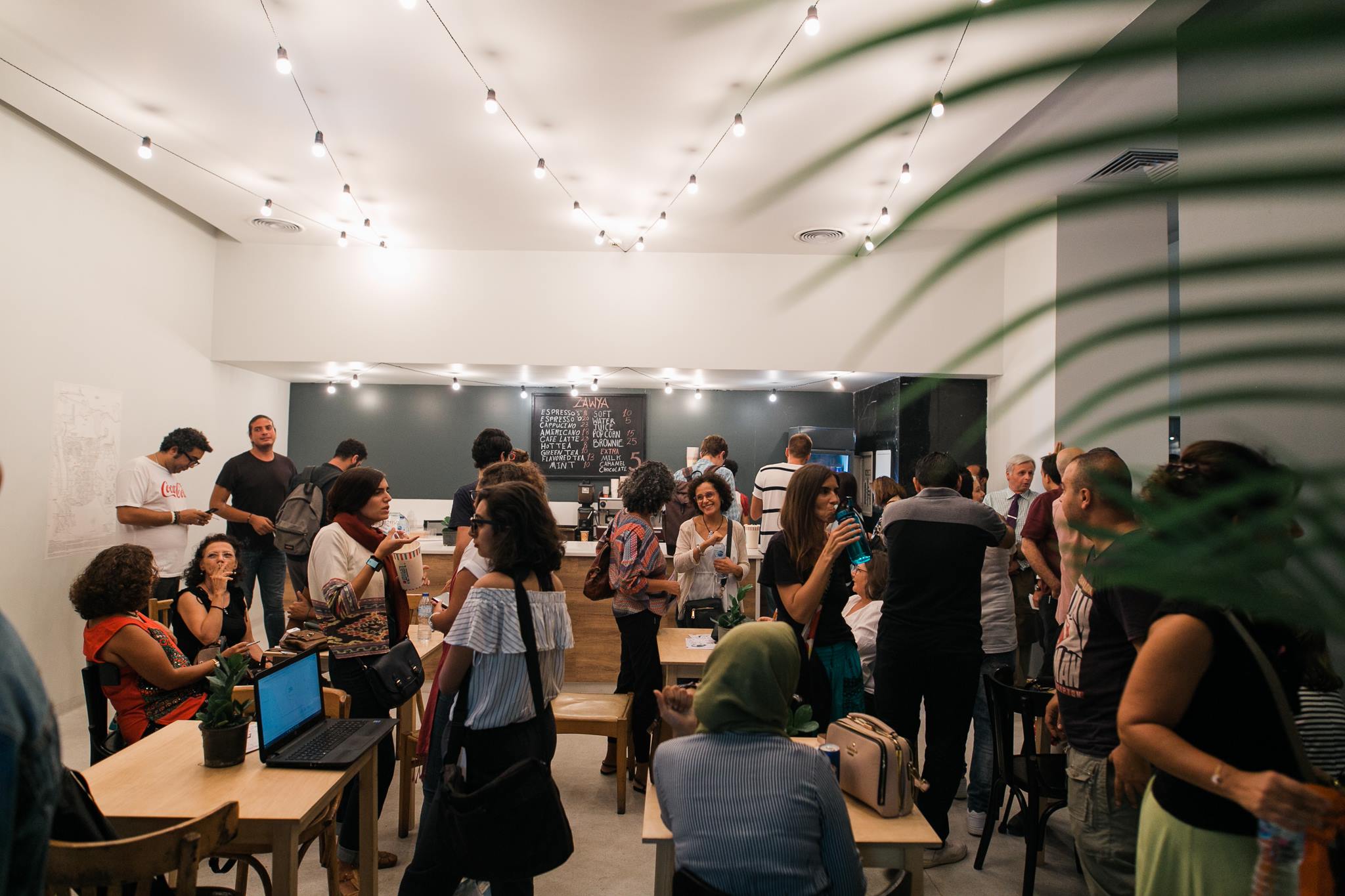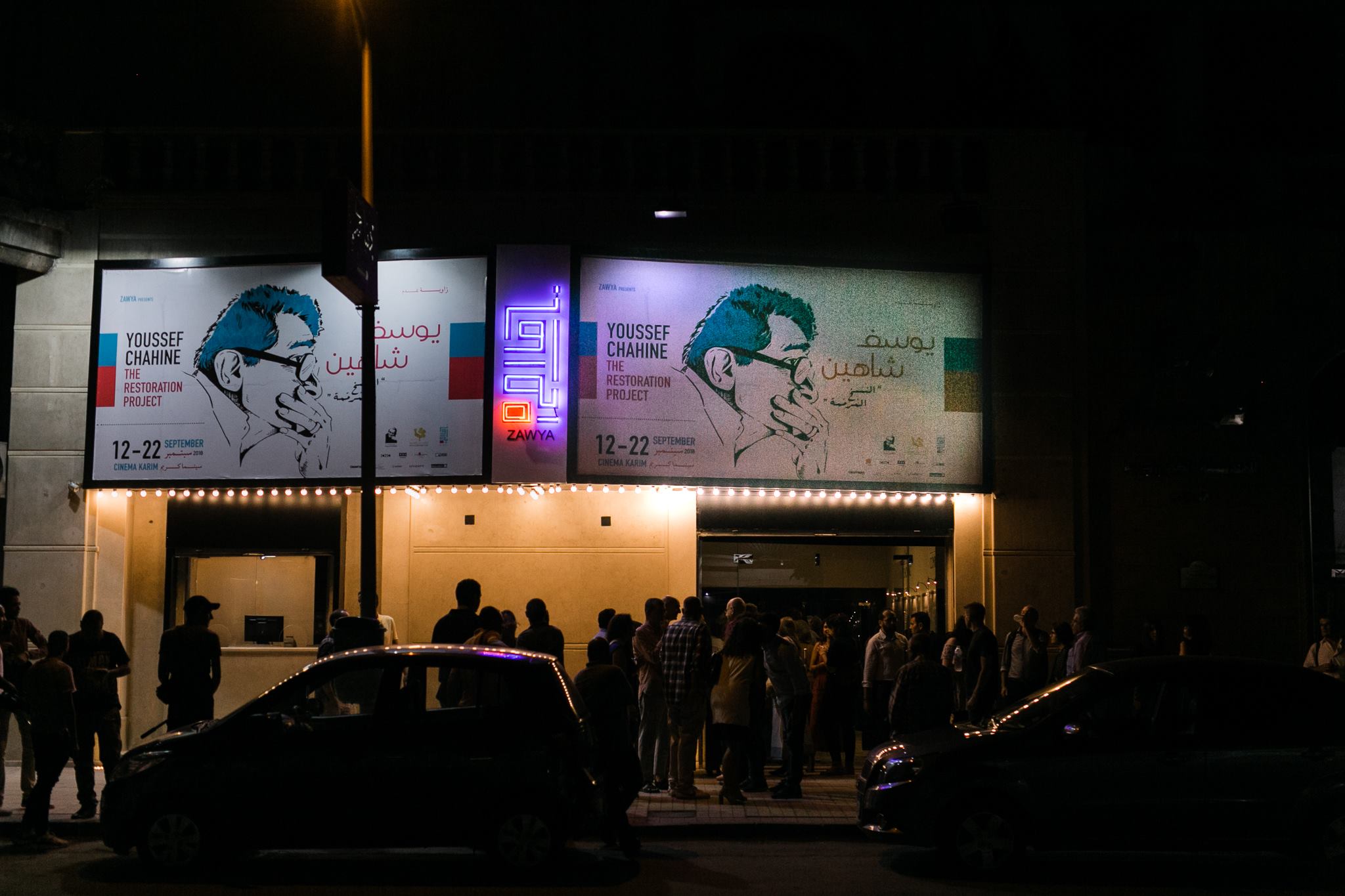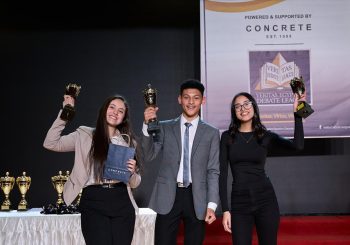The smell of freshly popped corn wafting through the air, the excited buzz of cinema-goers standing outside the auditorium, the sudden hush of the crowd once the lights go off and the pre-movie advertisements begin- who would have thought these simple cinema pleasures would come to be missed so dearly?
With the uncertain atmosphere the pandemic has blanketed across the arts and culture sector, Egyptian Streets spoke to the director of of one Cairo’s most beloved independent cinemas, Zawya.
Since 2014, Zawya has provided Egypt with a new and unique cinema experience, showcasing both local and international independent films that would not be otherwise showcased in mainstream cinema venues. Since then, this art-house cinema has also hosted a multitude of events and film festivals, including the annual Panorama of the European Film – an extensive month-long program that showcases a multitude of award-winning European films.
“In March, we took the decision to close our cinema because of the pandemic, and that was a bout a week before there was an official decree from the government to shut down all cinema,” says Zawya Director Youssef el Shazli, “we took that decision on our own, feeling that it wouldn’t be very responsible of us to keep doing screenings with the coronavirus being such a threat, we’ve been closed since.”

The young cinema venue director, along with his fellow employees, have had to face unexpected closure for a longer period of time that anticipated. “It’s a very confusing time for us because it’s full on uncertainties,” expresses El Shazli, “we don’t know when we will be back resuming our programs; we are dependent on the government deciding, but we are also dependent on our own understanding and judgement.”
Despite this sudden hit to the business however, El Shazli also mentioned the fact that although on-ground cinema staff have unfortunately had to face lack of work during this period, the rest of the team have been working diligently from their homes in attempts to keep the business afloat.
“Of course, financially, it’s a very difficult situation for us because part of our revenue is based on ticket sales, as well as any revenue coming from the cinema – the space, the cafeteria and concession sales – and so all of these revenues have completely disappeared in the last few months,” says El Shazli, “so we’re kind of relying on our own savings at the moment, as well as certain grants that we were able to secure this year, but it’s difficult because these things have a time limit and we can’t go on like this forever.”

Despite these financial burdens looming in the air, the Zawya team have also been keeping up-to-date with how cinemas worldwide have attempted to adjust to the situation at hand – from sanitization methods and new rules and regulations to other cinema-going options such as drive-in cinemas.
“We’ve been looking at other cinemas and what they’ve been doing; there are now very specific guidelines as to how many people can enter the cinema, how to make it contactless, how to improve hygiene standards, how to protect your staff and so on,” explains El Shazli, “we’ve been studying the situation for when the government decides it would be okay for cinemas to re-open – which we have no idea when that will be.”
El Shazli went on to express how the general Zawya staff energy is still relatively high considering the situation at hand, and they are focused on improving and developing their services, as well as studying alternative options for future implementation.

“The most obvious project we are currently considering is a drive-in cinema, which is what a lot of cinemas around the world are doing at the moment,” El Shazli says, stressing on the fact that they are assessing this option’s feasibility both in terms of the right partnership, as well as in terms of general health and safety.
With nothing concrete seemingly evident for the near future, El Shazli is but one of many in the arts and culture sector who have been greatly affected by the pandemic. Yet despite the air of uncertainty, the Zawya team manage to stay hopeful and positive. For those who work in the arts and culture sector, there’s not much else to do but remain hopeful and work toward adjustment and adaptation.
“Cultural events in general are based on human gatherings and human interactions, and our work specifically is based on the collective experience of watching films and bringing people together to enjoy the cinema – this is what we believe in, and it’s what we would like to go back to,” says El Shazli.






Comments (2)
[…] Covid-19 pandemic hit the world, a debate started in the arts sector on whether the future of events would be online, and how it could become the new normal even after the pandemic ends,” explains […]
[…] With the uncertain Continue reading at source website […]